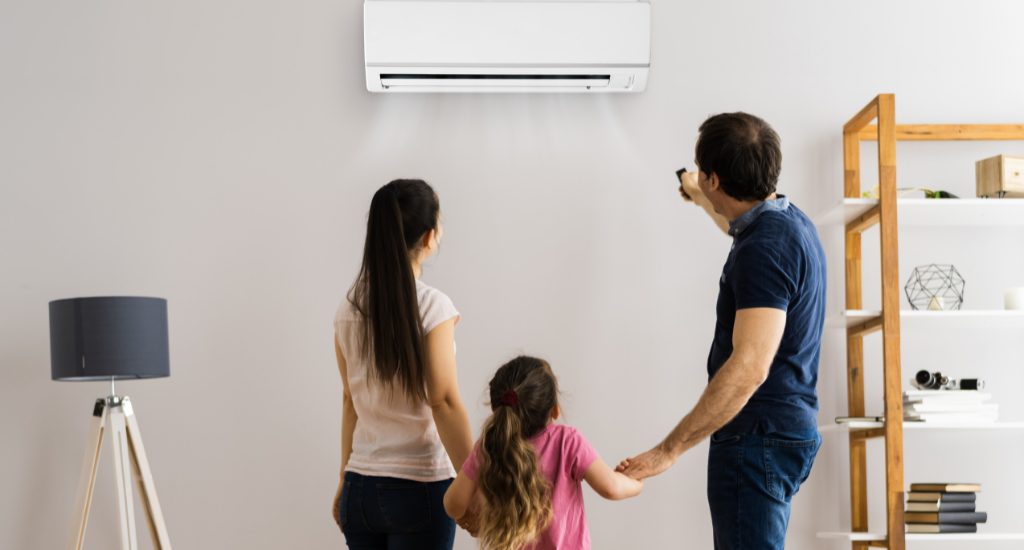
In the scorching heat of summer, an air conditioner can feel like a lifesaver, providing a cool and comfortable haven indoors. With rising temperatures, it’s natural to wonder whether it’s safe to leave your air conditioner on throughout the night. While the idea of a cool and uninterrupted sleep is appealing, it’s important to understand the potential safety implications and considerations that come with this practice.
In this article, we’ll delve into the various aspects of leaving an air conditioner on overnight and help you make an informed decision for your comfort and safety.
The Functioning of Air Conditioners
Air conditioners work by removing heat from indoor air and releasing it outside, creating a cooler environment. The cooling process involves the circulation of refrigerant through a series of coils, which absorb and release heat. While this process ensures a refreshing indoor atmosphere, it also consumes a significant amount of electricity. Proper understanding of your air conditioner’s thermostat settings and temperature control mechanisms is crucial to ensure effective cooling while maintaining energy efficiency.
Energy Consumption and Cost Considerations
Extended operation of your air conditioner throughout the night can result in increased energy consumption, leading to higher electricity bills. The energy usage during this period can contribute significantly to your overall monthly expenses. To mitigate this, consider energy-efficient alternatives such as using a ceiling fan in conjunction with your air conditioner or investing in a programmable thermostat that adjusts the temperature automatically during the night.
Effects on Air Quality
Leaving an air conditioner on overnight can impact indoor air quality. While air conditioners circulate and filter indoor air, there is a risk of recirculating pollutants that may have accumulated over time. To maintain optimal air quality, it’s important to ensure proper ventilation, such as opening windows when outdoor air quality is good. Regular cleaning and maintenance of your air conditioner’s filters can also help prevent the recirculation of airborne particles.
Wear and Tear on the Air Conditioner
Prolonged usage of your air conditioner, especially when left on overnight consistently, can lead to increased wear and tear on its components. The strain on the system’s compressor and other parts can result in reduced efficiency and potential breakdowns. To mitigate this, adhere to regular maintenance schedules recommended by the manufacturer. Regular inspections, cleaning, and timely servicing can extend the lifespan of your air conditioner and maintain its performance.
Fire and Electrical Hazards
Leaving an air conditioner on overnight increases the risk of overloading circuits and power surges. These electrical hazards can not only damage your air conditioning system but also pose a significant fire risk. It’s important to ensure that your electrical circuits are properly rated for the load your air conditioner places on them. Additionally, consider using surge protectors to safeguard against power fluctuations and invest in an air conditioner with safety features that reduce the risk of electrical fires.
Temperature Regulation and Health Impact
Maintaining a comfortable sleep environment is essential for a good night’s rest. While cooler temperatures can contribute to better sleep, excessively low temperatures can have adverse effects on your health, such as respiratory issues and discomfort.
It’s advisable to find a balance between a comfortable sleep temperature and energy efficiency. Research indicates that a temperature range between 65 to 72 degrees Fahrenheit (18 to 22 degrees Celsius) is generally recommended for most individuals. This range aligns with your body’s natural temperature drop during sleep, facilitating better slumber and relaxation. Adjust your thermostat settings to a moderate level that promotes both comfort and safety.
Environmental Impact
The environmental impact of running an air conditioner all night extends beyond your home. Many air conditioners use refrigerants that contribute to greenhouse gas emissions, affecting the overall environment. To reduce your carbon footprint, consider using air conditioners with environmentally friendly refrigerants or exploring alternative cooling methods, such as natural ventilation during cooler nights.
Smart Technology and Automation
Advancements in technology have brought about smart thermostats and automation features that can help manage your air conditioner’s operation efficiently. These tools allow you to set schedules, adjust settings remotely, and even monitor energy consumption. Utilizing these features can help strike a balance between comfort, safety, and energy savings, making your overnight cooling experience more responsible and efficient.
The Vital Role of Regular Maintenance
Sustaining efficient nighttime cooling necessitates the regular maintenance of your air conditioning system. Routine servicing, regular filter cleaning or replacement, and addressing any malfunctions promptly are integral to extending the lifespan of your system and ensuring its optimal performance. A well-maintained system operates more efficiently, thereby enhancing nighttime comfort and overall satisfaction.
At ONC Air, we provide the most affordable yet reliable preventive AC maintenance services in almost all cities across South Florida making AC care easier and cheaper for you.
Make Informed Choices for Nighttime Cooling

To sum up, the quality of your sleep is profoundly influenced by the temperature and comfort of your sleeping environment. Employing your air conditioner effectively during the night plays a pivotal role in ensuring restful sleep. By adopting the right temperature settings, embracing technological advancements like programmable thermostats, and prioritizing maintenance practices, you can cultivate a sleep sanctuary that fosters rejuvenation and overall wellness.
It’s important to recognize that creating an ideal sleep environment encompasses various factors, and a well-functioning air conditioner contributes significantly to achieving this goal. By implementing the recommendations outlined in this comprehensive guide, you can craft an authoritative and informative article that not only educates but also ranks favorably on search engines.



